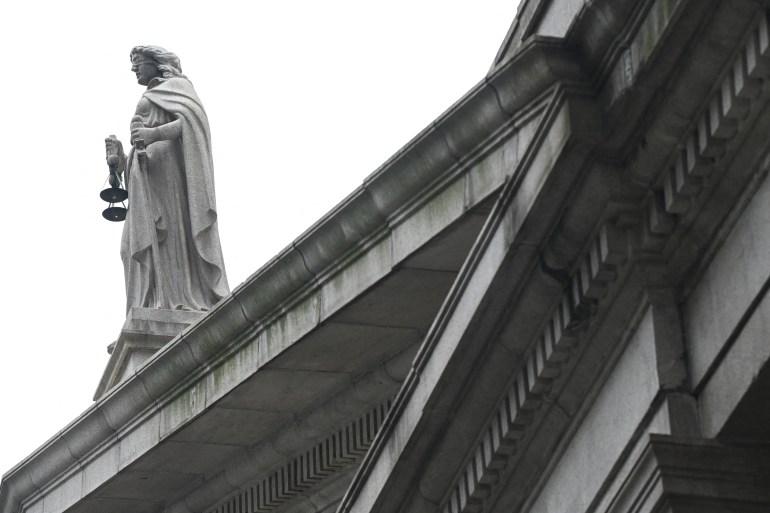Source: ALJAZEERA
ALJAZEERA MEDIA NETWORK

The Chief Executive of Hong Kong defends the judiciary against claims that security and sedition laws have compromised the rule of law.
Hong Kong has responded to a British judge who resigned from the territory’s highest court last week, expressing concerns that the rule of law is under threat following the significant conviction of 47 pro-democracy politicians and activists.
Jonathan Sumption, one of the two British judges recently resigning from the Court of Final Appeal, claimed in the Financial Times on Monday that the previous month’s decision—still subject to appeal—highlighted a growing issue within Hong Kong's judiciary, constrained by the challenging political environment imposed by China.
The 47 individuals were found guilty of subversion for organizing an unofficial primary to select their candidates, marking the largest trial under the National Security Law, which Beijing enforced in 2020.
Sumption’s concerns included the security law and the revived colonial-era sedition law, which he termed as "illiberal legislation" severely restricting judges' freedoms. He also mentioned the "interpretations" by Beijing’s National People's Congress Standing Committee and the authorities' "paranoia," citing harsh punishments for slight dissent.
The Hong Kong government rejected these criticisms on Tuesday, emphasizing the independence of its judiciary and the lack of interference from Beijing or any decline in the rule of law since the 1997 handover from British to Chinese rule.
Chief Executive John Lee reinforced that prosecutorial and adjudication powers are protected by the Basic Law, Hong Kong's mini-constitution. He stated that these powers have never been interrupted and will continue independently.
In a press conference on Tuesday, Lee accused the UK of attempting to use its judicial influence against China and Hong Kong. He remarked that while judges might have personal political views, those should not interfere with their professional assessments.
Sumption, who previously resisted calls for foreign judges to resign in 2021, stepped down alongside Lawrence Collins. Collins indicated to the Associated Press that while he trusted in court independence, the political situation in Hong Kong prompted his resignation.
Hong Kong experienced widespread protests in 2019 regarding plans to extradite suspects to mainland China, which evolved into pro-democracy demonstrations becoming violent. In response, China implemented the National Security Law in July 2020, and Hong Kong passed another security law earlier this year.
Since then, election rules have tightened, requiring candidates to undergo rigorous vetting to ensure only "patriots" run for office. Several pro-democracy politicians and activists have faced arrests or exile, with police offering rewards for their capture. Subsequently, civil society groups and independent media have also ceased operations.
Trials under the new security laws continue, with the first arrests under Hong Kong's law occurring last month. Beijing and Hong Kong officials claim these laws have restored stability post-2019 protests.
Amidst the debate over foreign judges, Hong Kong announced that former Canadian Chief Justice Beverley McLachlin would step down in July at the end of her term. McLachlin, who joined in 2018, recently faced pressure to remain in her judicial position.
McLachlin expressed confidence in the independence of the court and its commitment to upholding the rule of law in a brief statement.
Hong Kong operates under a common law system, unlike mainland China's court system controlled by the Communist Party. Since the 1997 handover, non-permanent international judges have consistently served on the top court's bench, with seven remaining after McLachlin's departure, down from 15 in 2019.
Your email address will not be published. Required fields are marked *